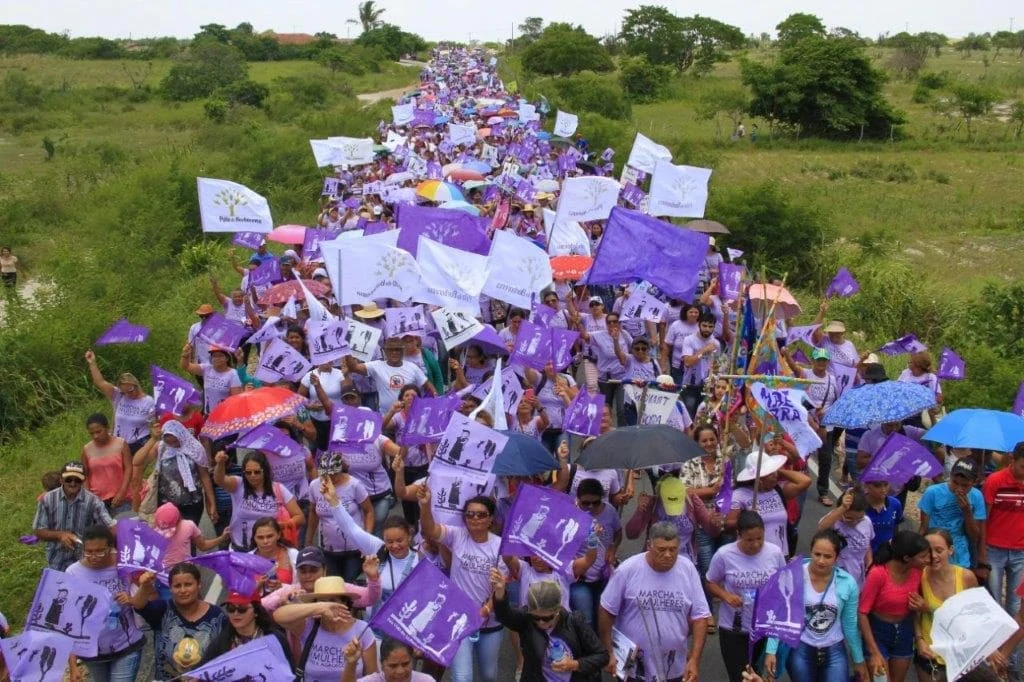8 March 2016 was the annual International Women's Day. All over the world women drew attention to their disadvantage. So also in Brazil. The young people from our partner organisations were in the forefront of this event, opposing the prevailing machismo.
Annette Mokler, Programme Coordinator Brazil
Women's Day is an important day of mobilisation for all our partner organisations. Irrespective of whether these organisations are specifically concerned with women's rights, violence against women or whether they work in the agricultural sector. This is why our partner organisations in Brazil were also active on the streets on 8 March. In Paraiba, for example, 5000 people demonstrated for women's rights.
Young people active against machismo
These demonstrations often involve very active participation by young people who no longer want to accept the machismo that is widespread in Brazil. They rebel against violence against women and question traditional role models. Already in preparatory seminars, organized young people (supported by terre des hommes schweiz) worked out the topic, informed themselves, discussed and defined their agenda and joint actions within the large demonstration. Among other things they performed a play.
Until all the women were down
In addition, a performance was shown in the demonstration procession, in which many young women shouted out information about the disadvantaged situation of women in Brazil and then fell to the ground symbolically for violence against women. This was repeated until all the women were on the ground.
Recalling the successes of governments
The incumbent Workers' Party (PT) has come under severe pressure due to strong accusations of corruption. Some speeches also referred to this. The corruption that permeates all political parties was condemned in the strongest terms. Nevertheless, the speakers considered it appropriate to recall various successes of the PT governments: the facilitation of the lives of ordinary women in rural areas (e.g. the "One Million Cisterns" programme), the progress made in poverty reduction, the improvements in women's rights and better access to education for people from poorer social classes.
Despite all the criticism of the PT government, these social movements - especially in the current crisis and the desire to remove the president from office - are expressing their support for the ruling PT party and its elected president.


